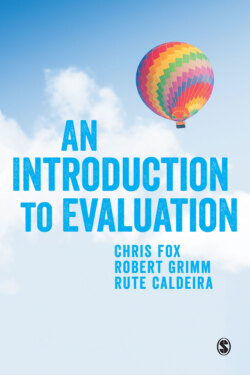Читать книгу An Introduction to Evaluation - Chris Fox - Страница 56
На сайте Литреса книга снята с продажи.
Responding to the criticisms of ethical guidelines: the evaluator as a self-reflective negotiator
ОглавлениеIn sum, and following on from this element of cultural relativism applied to evaluation ethics, the major quality required in an evaluator is their Verstehen capacity. This stands for the evaluator’s ability to empathise with the context, be self-reflective regarding their own positions (ethical and others) within that specific context, and be able to negotiate around common understandings and differences. This resonates strongly with cultural competency where the evaluator’s capacity to be reflexive is paramount. As Sultana (2007) notes that:
being reflexive about one’s own positionality is [not] to self-indulge but to reflect on how one is inserted in grids of power relations and how that influences methods, interpretations, and knowledge production. It is also implicated in how one relates to research participants and what can/cannot be done vis-à-vis the research within the context of institutional, social, and political realities. (Sultana 2007: 376)
Hence, and whilst the ethical guiding principles are useful, these must be seen mostly as pointers rather than rules that have to be applied regardless. Empathy and the ability to negotiate ethically the ethics that apply to the context are the most important.
